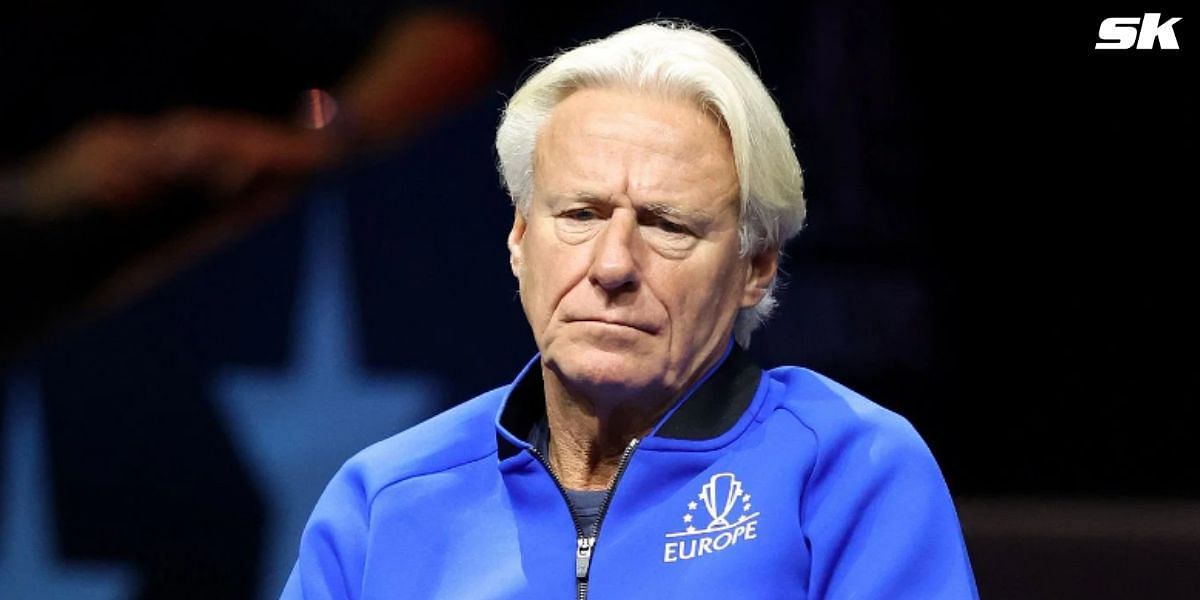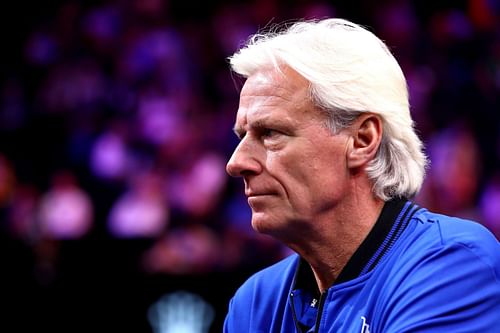
"Bjorn Borg would watch TV, then go out with night people; he wanted another life" - When Swede's ex-wife shed light on his "sad" retirement struggles
Bjorn Borg's ex-wife, Mariana Simionescu, once shed light on how the Swedish legend struggled to find purpose after retirement. She shared these insights into Borg's mindset shortly before his surprise comeback to tennis.
By the age of 26, Borg had won 11 Grand Slam titles, with his last Major title coming at the 1981 French Open. However, the Swede grew disillusioned with tennis after a disappointing 1982 season, during which he only competed in two tournaments and opted to skip all the Majors.
The former World No. 1 then announced his shock retirement from tennis in January 1983 and played what was expected to be his last professional match in Stuttgart in 1984.
At the time, the Swede said that he had relished life on tour when he was pursuing his goals, but that his hiatus in 1982 allowed him to relax with his wife Mariana Simionescu and experience the stability of married life.
"Basically, over the years, I was practicing, playing my matches, eating and sleeping. But there's other things besides those four things. I didn't really miss it, because I wanted to be successful in tennis. I had my goals in tennis. I did the thing, I liked it, I enjoyed it very much," Bjorn Borg said (via the New York Times).
"But then last year, when me and Mariana had this time off, we had a great time together, I felt very relaxed. We were spending time in one place, feeling like it was our home, like man and wife," he added.
Although Bjorn Borg had expressed his desire to enjoy married life with his wife, they divorced in 1984 after four years of marriage. The Swede also grew disenchanted with retirement, choosing to make a surprise return to tennis in 1991, despite previously declaring that he "will never try to come back."
Ahead of his return to the tour at the 1991 Monte Carlo Open, Borg's ex-wife Mariana Simionescu, who had a nine-year professional tennis career herself, revealed that their adolescence revolved entirely around the sport, preventing them from experiencing life as "real people."
"We never had an adolescence. Bjorn and I started [playing] tennis, started together, so young, there was never anything but the game. We were closed off. Our development was inhibited. We never had time to live like real people," she said.
This lack of "development" was evident in Bjorn Borg's struggle to find direction after retirement. The Swede's ex-wife disclosed that the 11-time Grand Slam champion felt lost, and shed light on his "sad" battle with contemplating what to do with his life.
"He didn't know what to do; he didn't know his place. It was so sad. Bjorn would watch TV, then go out with the night people. He wanted to have another life, but he'd say, 'What am I going to do now?'" she said.
Bjorn Borg failed to win a single match on his comeback from retirement

After spending nearly a decade away from professional tennis, Bjorn Borg made his return to the tour at the 1991 Monte Carlo Open. The Swede's comeback didn't pan out like he hoped, as he suffered a 6-2, 6-3 loss to Jordi Arrese.
The 11-time Grand Slam champion then competed in eight tournaments in 1992, failing to win even a single set. Although Borg went winless the following year as well, his defeats weren't as one-sided.
Jaime Oncins claimed a 6-4, 6-7(7), 6-4 win over the former World No. 1 in the first round of the 1993 Volvo Tennis San Francisco. Subsequently, the Swede's campaign in Zaragoza ended in a 6-1, 5-7, 7-5 loss to Joao Cunha-Silva.
Bjorn Borg played the final match of his career at the Kremlin Cup, where he suffered a narrow 4-6, 6-3, 7-6(7) defeat to Alexander Volkov.